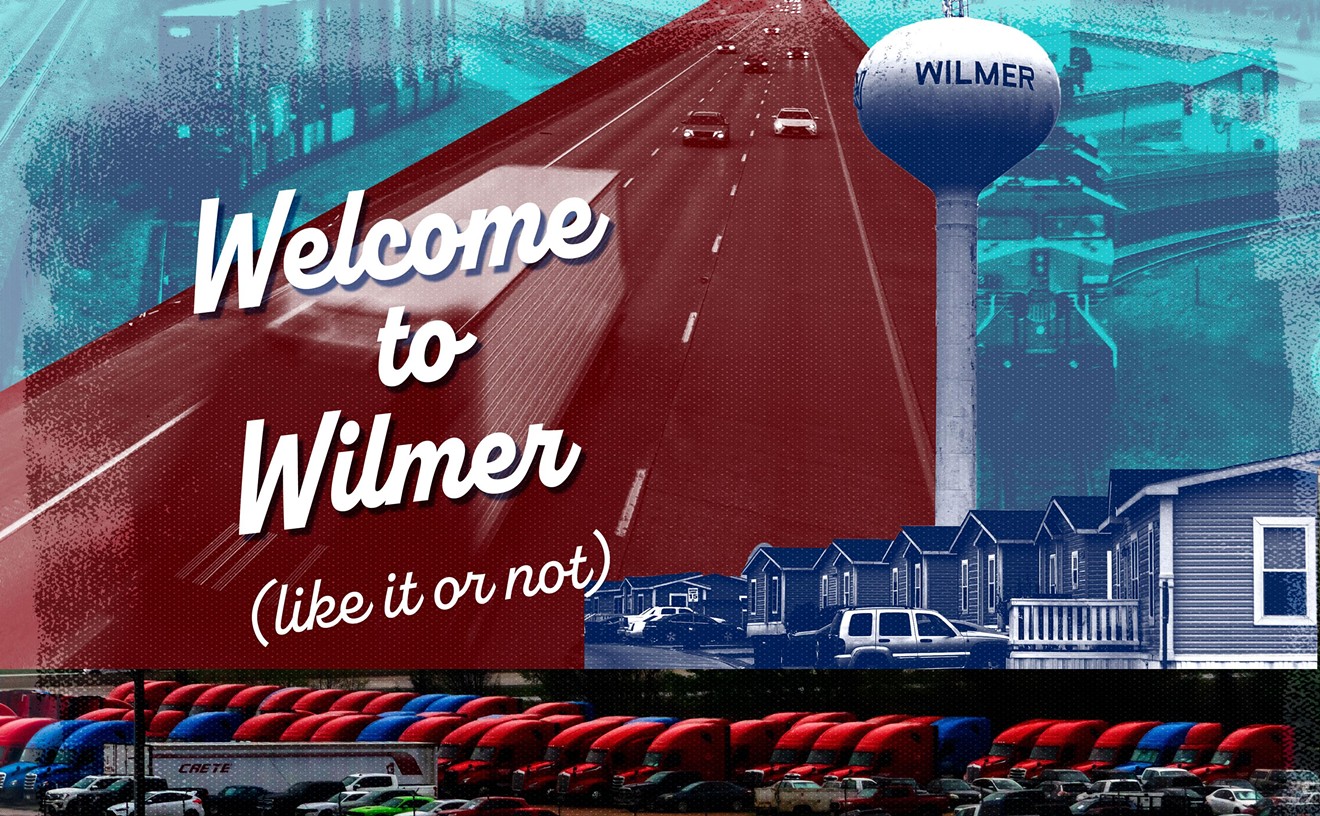The city of Dallas has been grappling for years with how to better regulate boarding homes for the elderly, mentally ill and disabled , which are currently subject to very little oversight. About three weeks ago, the city council's housing committee was told that licensing and regulating the homes could cost the city upwards of $1 million a year and would require a staff of no less than 18 people (a figure that frankly seems a little inflated, considering there are about 300 homes in the city).
Today the full city council will once again be briefed on the boarding home issue. At some point, theoretically, they'll finally agree on how to implement HB 216, the state law that allows cities to require some minimum standards for quality of life in boarding homes -- things like clean sheets, locking doors, and not cramming residents in eight or 10 to a room.
In preparation for that briefing, on Monday the housing committee waded into boarding homes once again. They had a strange and sometimes illuminating conversation, from which we took away three things:
1. The city's currently being sued by a boarding home operator who runs seven homes.
2. Dwaine Caraway really seems to dislike this particular unnamed boarding home operator, and has serious concerns about the homes in general, particularly their impact on neighborhoods.
3. Scott Griggs wants better living standards for boarding home residents, and he'll push hard to get his colleagues to agree.
The problem in a nutshell is this: How does the city legislate bad boarding homes out of existence, without pushing their residents into the street? What are reasonable standards that operators should have to follow? And does a group home in a neighborhood damage quality of life for everyone else?
The housing committee spent most of Monday's meeting in executive session, likely because of the pending lawsuit. When they came out, Caraway immediately laid into bad operators. In one neighborhood in his district, he said, a particular home "got so bad the house on the left, the house on the right, and the house across the street went up for sale and they moved, because of the group home. Ambulances and fire trucks were always called to that address."
Caraway called the owner of that home "very arrogant," adding, "I hope she's watching this on television, because she's arrogant. She's in business, and she's operating it as a business." Some operators are making a tidy profit, he said, and they're the ones who need to be better regulated. "We're allowing them to operate and get away with something that's running out of control," he said.
He suggested limiting the number of homes one operator is allowed to own, and raising the proposed annual licensing fee even more. "Maybe there should be a $2,000 license fee, $2,000 a month as far as I'm concerned. ... Maybe that's a little ridiculous. But we need to put some teeth into this business to the greatest extent we possibly can."
The whole situation, he said, reminded him of when tobacco shops started selling K2. (Fake weed. It's his analogy, not ours.) "It's catching on like wildfire. ... We must find a way to regulate this stuff somehow. I'm not opposed to going to court."
Caraway said that many group homes are essentially "a hotel in a neighborhood." So maybe the solution is to change the name of a home, he added, "and classify 'em as something else that we can control." He didn't seem to have much support for that suggestion, though. ("Boarding home" is already a catch-all term for about five different types of residences catering to the mentally ill and disabled. Re-classifying them again could be a bureaucratic nightmare.)
Scott Griggs directed the conversation back to boarding home residents, and said it's the city's responsibility to make sure they're living in a safe environment. "We have the right to make sure people live in decent, dignified surroundings," he said. The requirements in HB 216 he said "are not asking much of an owner. They're not unreasonable."
Griggs also called the boarding home situation right now "uneven," with some good homes and some bad ones. A recent code compliance inspection found that 26 out of the 300 or so homes had serious health and safety issues (and those are just the homes the city knows about).
Finally, he laid it out: The state law provides "a good starting place. We should move forward with this." After years of talking about the problem, Griggs added, he doesn't want to see any more "theoretical discussions." Any issues the legal department or city staff sees, he said, "I want to see a section, chapter and verse," and a proposed solution.
Pauline Medrano agreed. "Once we get this done, I think Dallas will be seen as one of the great leaders," she said, "that have stepped up and done this for the right reasons."










